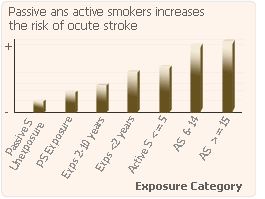
For women over the age of sixty, coronary heart disease and cardiovascular disease are the primary concern of death. The risk of death due to coronary heart disease beats out the risks of death by cancer and all other diseases by four to eight times. Nearly 520,000 women die from coronary heart disease each year and the number doesn't seem to be lessening anytime soon. Since 1984, the number of deaths in women due to coronary heart disease has escalated. The mortality rate has exceeded that of cardiovascular related deaths in men by almost 50,000 each year. Oddly enough, the incidence of cardiovascular disease has declined dramatically in men since 1980. The differences in risk factors between men and women should not be ignored however, as they may affect treatment decisions.
Coronary heart disease is considerably less in women before menopause, an aspect that has been attributed by the available and copious levels of estrogen. After menopause, a woman's estrogen level declines dramatically, putting her at jeopardy for a slew of diseases including coronary heart disease. Accordingly, the hypothesis logically arises of whether or not hormones replacement therapy will play a positive role on the development of coronary heart disease in women past menopause.

At the top of the treatment list of women who have gone through menopause is hormones replacement therapy. Continuing studies are in effect to establish the association between hormones replacement therapy and the danger of cardiovascular disease. The Heart and Estrogen/Progestin Replacement Study and the Estrogen Replacement and Atherosclerosis Study failed to find any benefit of estrogen hormones replacement therapy and estrogen plus progestin hormones replacement therapy in reducing the risk of coronary heart disease in women. Nor did it stop the onset of coronary heart disease in women that currently had the disease.
Other information suggests that lipid-lowering therapy better lessens women's coronary heart disease risk and death, and hence should be the drug of choice for women who already have coronary heart disease.
To stop coronary heart disease women should not smoke. More than fifty percent of coronary heart related deaths are due to tobacco use. Heavy smokers are 2 - 4 times more likely to develop the disease over nonsmokers and light smokers are at double the risk. A positive side is that quitting smoking decrease the risk of coronary heart disease in just months.
Hormones replacement therapy definitely has its benefits but it is not a cure-all. Women taking hormones replacement therapy should know that it will not cure or halt the onset of coronary heart disease. Women currently taking hormones replacement therapy should talk to their doctors and be aware of all possible side effects.